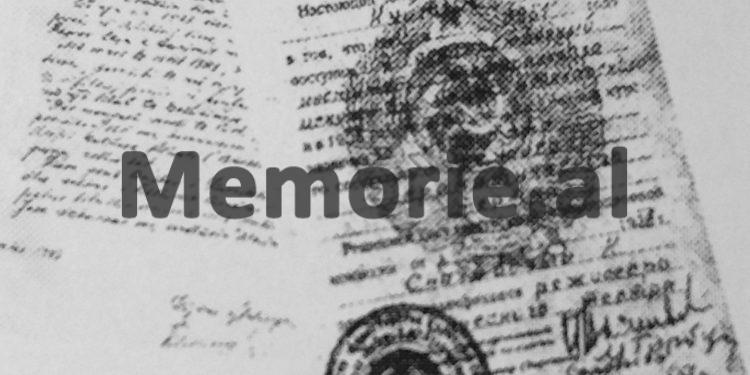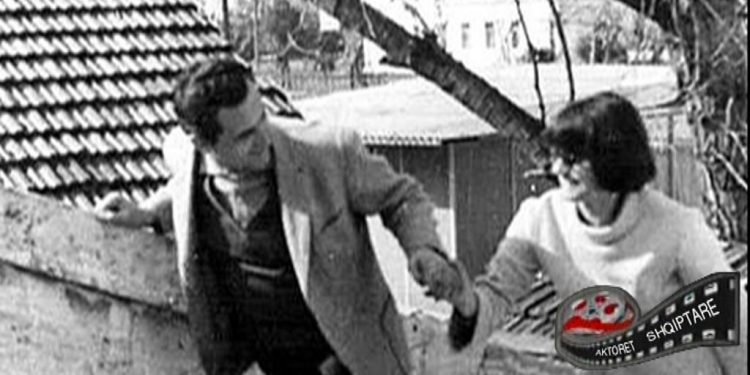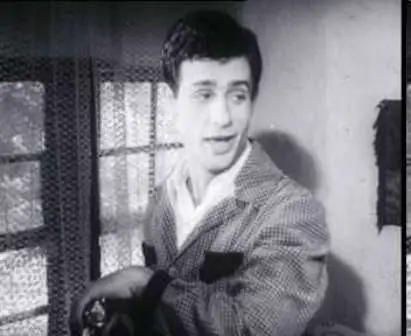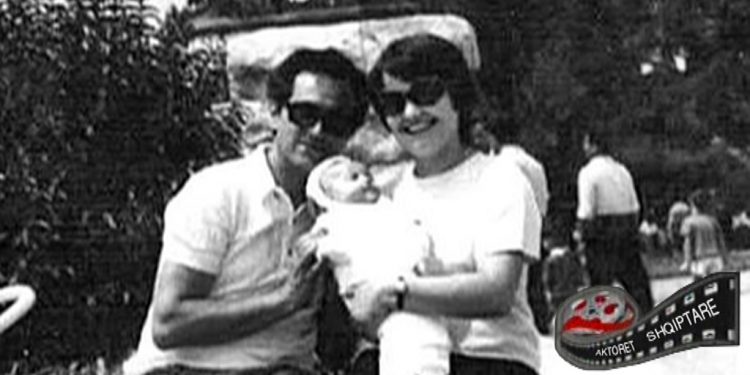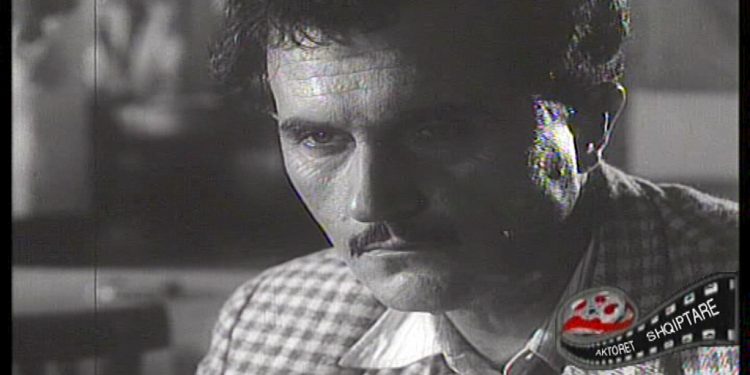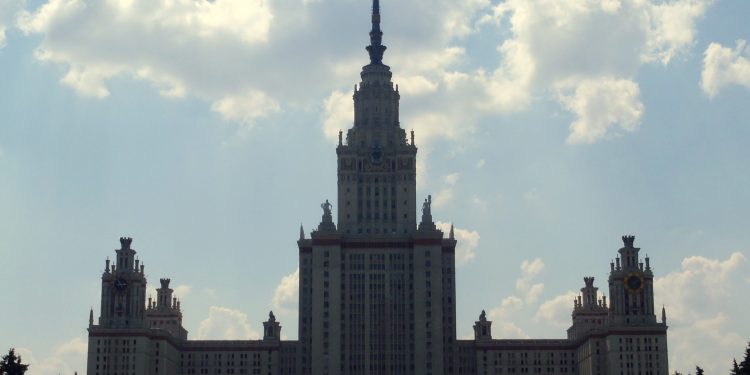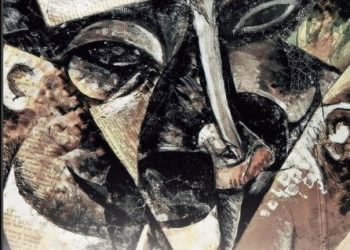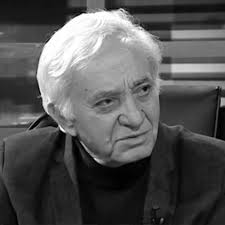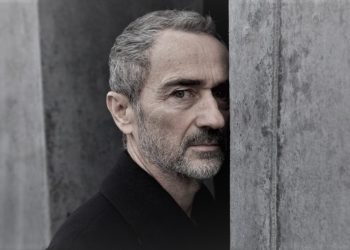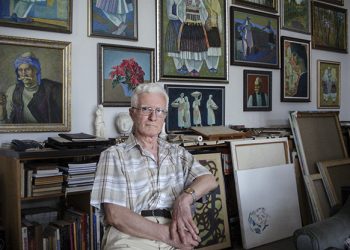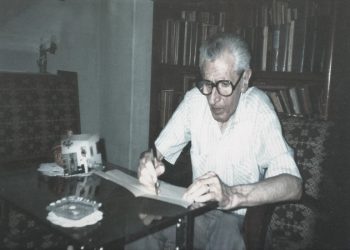Dashnor Kaloçi
Memorie.al publishes the unknown story of the famous actor and director, Kujtim Spahivogli, extracted from some archival documents of his personal file of the Framework office, where besides an autobiography that Kujtim wrote himself in 1983, describing in a chronological history of the family and his personal up to that time, in the file in question, there are also some characteristics that were compiled by the basic party organization of the High Institute of Arts in 1973, with the accusations made against him, which served as “raw material” to send him for re-education “to the working class”. As well as the characteristics given to him by the Construction Company in Mbrostar of Fier and that of the People’s Council of the village of Bërzhitë in Tirana, who wanted to help him return as a lecturer to students at the Higher Institute of Arts and as an actor. Director at the People’s Theater.
It was July 13, 1987, when in an old house in Tirana, located on Hoxha Tasin Street, completely alone and in a miserable condition, Kujtim Spahivogli, the famous actor and director who graduated from the Institute, passed away. Moscow Higher School of Dramatic Art, until 1973, had worked as an actor and director at the People’s Theater, as well as as a lecturer and Head of the Chair at the Higher Institute of Arts in Tirana.
Who was Kujtim Spahivogli, what family did he come from and what was his past? Where did he work and study and why did he leave the People’s Theater and the Higher Institute of Arts in 1973? What were the accusations made against him by the basic party organization of that Institute and what position did Spahivogli take regarding those accusations?! Regarding these and other unknown aspects of his work and life, we know some documents that are part of his personal file of the Framework office, which Kujtim never had the opportunity to see while he was alive! In this file, in addition to some documents of the basic organization of the party of the High Institute of Arts, which were also the “raw material” on which “relied” the Party Committee of the Region no. 2 and that of the district of Tirana, for his departure from the Institute and sending for “re-education among the working class”, is also a short autobiography that Kujtim wrote on October 30, 1983, after returning from exile.
As we will see from the autobiography that he himself wrote (at the request of the party and state bodies of that time), after returning to Tirana in 1978, he stayed without work in Tirana for five years, and after some requests, finally in 1983, he was appointed to work as a “methodist” in a house of culture in the village of Bërzhitë, hoping that one day he would return to his students at the Higher Institute of Arts and colleagues at the People’s Theater, which he had a dream, but that unfortunately he could not achieve….?!
The first blow to Memory
According to the documents found in the personal file of Kujtim Spahivogli’s cadre, the first attack on him dates back to 1972. Thus in a work characteristic that is done to him in that period of time by the cadre branch of the Tirana Party Committee , among other things it is written: “Comrade Kujtim Spahivogli is one of the friends with more capacity and experience in the dramatic branch. But as it was pointed out in a speech of Comrade Enver Hoxha in the district of Mat, he had shortcomings in the management of the department of acting, did not perform state duties, and did not help the professors of this department methodically and pedagogical ”.
Tirana on 29.8.1972
Secretary of the Basic Organization,
S.B.
After what can be called the first blow to Kujtim Spahivogli, the attacks on him resumed there from the beginning of 1973, just a few weeks after the 11th National Song Festival on Radio-Television, when on March 15 of that year, Enver Hoxha delivered a speech in the apparatus of the Presidium of the People’s Assembly, where as part of the “fight against liberalism and foreign performances and their influences in art and culture”, began criticizing and attacking Todi Lubonja and Fadil Paçrami, making them responsible for 11th Festival. In this context, criticism and attacks on those who were considered the closest people and collaborators of Paçram and Lubonja, where one of these people was the well-known actor and director Kujtim Spahivogli, who was initially removed from the Institute, would also begin. Senior Arts, where he worked as head of department. After several meetings, the basic organization of the Party where Spahivogli belonged, proposed that he go for education in a district theater, for two years, but this was not accepted by the Party Committee of Tirana, which decided that he should go as a worker. Of reclamation in Fier, “to be educated among the working class”.
Charges against Kujtim in the Institute’s basic party organization
But what was Spahivogli criticized and accused of and what was his attitude regarding the accusations and what measures did the basic organization take against him? In this regard, it is known from a document where the characteristic of Memory is located, compiled by the Secretary of the Organization, Xh. S., dated 8.5.1973, which reads, inter alia:
“But comrade Kujtim Spahivogli, while working at the Institute, has manifested many weaknesses and shortcomings in his activity for which he has been criticized from time to time by the basic organization of the party. Even during the discussion of Comrade Enver’s speech on March 15, he was criticized for violating discipline, and for negligence in performing the duties of the head of the department, for abandoning classes for days, etc. The grassroots organization therefore proposes his dismissal from the post of head of department. Comrade Kujtim Spahivogli has underestimated the production work under various pretexts and has not done it for three years. Comrade Kujtim has also held wrong attitudes in the cadre problem. He has influenced to bring to the institute, cadres with bad political composition and bad moral standing. On several occasions he insisted on holding them accountable, thus losing his revolutionary vigilance. He has also intervened in a personal way to Fadil Paçrami, to bring such an element to the institute, as the case of Viktor Gjoka. As a communist, he fought consistently against conservatism and bureaucracy, but slipped into liberal positions, recognizing only the rights of students, without holding them accountable. In subsequent meetings and in the discussion of the March 15 speech, Comrade Kujtim acknowledged responsibility for poor work in the department, for breaches of discipline, for liberal attitudes in the life of the Institute, and in staffing problems. He has admitted that he had a tendency to be arrogant and that he was busy with a lot of work at once. For all these, the basic organization of the party decided that comrade Kujtim Spahivogli, be given a remark with a note in the registration box and be sent for re-education in a district theater for two years “.
As can be seen from the characteristics made by the secretary of the basic party organization of the Institute, it seems that Spahivogli did not follow the “party line” to be tough and to develop the class struggle, which he manifested with concrete case approaching the Institute, the actor, Viktor Gjoka. It also says that Spahivigli did not hold his students accountable at all, but left them to express their opinion quite freely. This is noticed and it is clear from the documents in his file, where, after being communicated the remarks of the secretary of the basic organization of the party, Xh. S., in a report of hers, the position of Spahivogli is made known, where among other things it is written: “The bureau of the party organization, thinks that comrade Spahivogli during the recent meeting of the drama branch, has opposed the organization of parties, in fact dismissing criticism of him. With his attitude, he has negatively influenced some professors and students. He refuses to be noted in his characteristic that he is sent to a district theater for re-education, but for circulation.
After this characteristic, the party secretary Xh. S., announces that the Committee of the Party of the Region, has approved their proposal, which states: “The apparatus of the Committee of the Party of the Region no. 2, agrees with the decision of the basic organization and the Higher Institute of Arts, that comrade Kujtim Spahivogli be sent for two years for re-education in a district theater.
First Secretary of the Party Committee of the Region no. 2
Peti Shamblli
Who wanted to help Kujtim return to Tirana?
In addition to documents that shed light on the decision of the party’s grassroots organizations to remove Spahivogli from the Higher Institute of Arts and the Theater as an “undesirable man for the party”, which led him to be sent as a production worker in the district of Fier , in the file in question, there are two documents signed by Ramiz Kullolli, who was the secretary of the party organization for Mbrostar (where Kujtim worked in Fier), and the chairman of the Joint Council of the village of Bërzhitë, Mehmet Alla, who appreciate Spahivogli’s work and attitude, wanting him to return to his work as a lecturer and director. In the characteristic of Ramiz Kullolli, for the work and behavior of Kujtim in Fier, among others, it is written:
“During this period that Kujtim has worked in our company, he has worked well in carrying out the tasks of the plan, as well as in terms of his behavior. There were no claims in the work process, he even asked to work in the heaviest work, such as concreting and in the brigade of iron-returners near the tunnels, etc. He has responded to the calls of the employees with readiness, working long hours and helping his colleagues by living a life without pretensions “.
Also in the evaluation of the Chairman of the Joint Council of the village of Bërzhitë, Mehmet Alla, where he worked as a medotist in the House of Culture, among other things it is written:
“His work is generally well appreciated. He has been shown to be tireless and with good professional skills. During the time he worked in the cooperative of Bërzhita, (in culture) he worked well, and helped to enliven the cultural life “.
But the kindness of these people who wanted to help Kujtim, being opposed by some fanatical bosses and communists who once (1973) had removed him as “supporters of the hostile group in art and culture of Lubonja and Paçram” . They could not accept that he should return to the auditoriums of his students and to the stage of the People’s Theater, where he had worked with all his strength and energy until the day they removed him from there.
Autobiography of Kujtim Spahivogli
I was born into a civic family (working father, housewife mother) in 1932. In 1938 the father died, leaving the mother with three minor orphans without any support. To make ends meet, she worked as a tailor at home, and my brother and I sold chestnuts, peanuts, and popular cigarettes. At this time I entered as an apprentice in some trades, though the name was apprentice, that we were in fact servants of the usta. At my mother’s insistence even though we worked for the mouth bite, we never dropped out of school. Being unhealthy, I never did all the months of schooling, although I always had good grades and results. From the first hours of the National Liberation Movement, the mother put herself, her home and her children in the service of the People’s War. Our house at the end of Hoxha Tasim Street became one of the most important bases. There were meetings of the Communist Party and Youth, illegal shelters (one of them Miladin Popovic), food and clothing were collected, which left for Peza. In 1943, after two sieges and raids on our house, my mother was forced to jump into the mountains illegally, taking us with her, even though we were still minors. For our revolutionary activity, the mother, comrade-in-arms of Kristo Isaku and Xhevdet Doda, was honored with the high decoration of the National War- Liberation. Together with the villain, at the age of nine, we guarded meetings, stole ammunition, served as a courier, and accompanied illegals. Brother and I joined the first Debatik groups. In 1943, I returned to Tirana and resumed the Technical School. In 1945, at the age of 13, I was admitted to the ranks of the Albanian Communist Youth, and in 1948, when my passion for theater arose, I left the Technical School, although I was very good in lessons and grades, I gave rehearsals for the People’s Theater, where I was not accepted for lack of talent. Convinced of my abilities, I did not return to the Technical School, despite the insistence of the Directorate and the basic organization of this school. For a year I worked with amateur groups. In 1949, I entered the Lyceum of Arts, straight into the third grade of the drama branch. In 1951, I graduated with honors, which gave me the right to study abroad that same year. From 1951 to 1956, I studied at the Moscow State Institute. In 1958, I defended my degree at that Institute. From 1956 to 1962, I worked as an actor in the People’s Theater, being also active as a director. In 1963, I was appointed as a lecturer at the Higher Institute of Arts, where since its inception I have been the head of the drama branch, head of department and artistic course leader. As a lecturer, I worked since 1959, when the high school for actor “Aleksandër Mojsiu” was established, in 1973, for mistakes of a liberal character in the field of theater; I was expelled from the party and sent for re-education in the Enterprise of Fier Reclamation. I worked there until 1978, when the collective and the Party organization, appreciating my work and attitude, which has been reflected in their characteristic, considered me to have completed my re-education experience in production. From 1978 to 1983, I was out of work at my home in Tirana, because my residence permit had been revoked in 1979. In March 1983, the Party, after studying my case, ordered me to be granted a permit. of residency and resume work in my profession, as a director in a trade union club. “For lack of free space”, as he told me, I am provisionally appointed as a Methodist in a house of culture in the village of Bërzhitë, where I continue to work today. I was a Member of the Central Committee of the BRPSSH and a member of the Central Council of the BPSH. I had the title of Assistant Professor and “Merited Artist”. I was decorated with the order “Naim Frashëri” of the II class./ Memorie.al
Tirana, October 30, 1983
(Kujtim Spahivogli)





